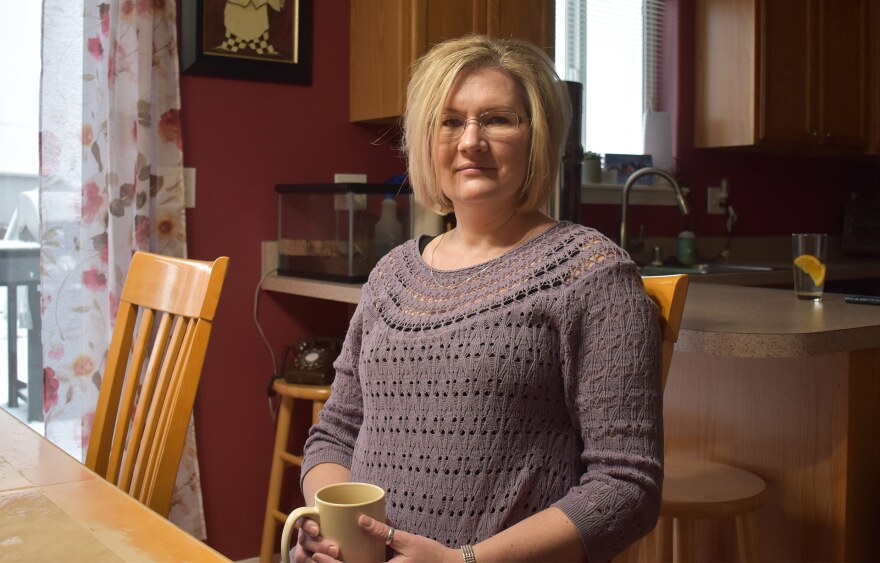Wednesday, the U.S. Supreme Court will hear oral arguments both for and against the Montana Supreme Court’s decision to shut down a school choice program it said violated the state constitution’s ban on public money flowing to religious schools. The case may decide whether Montana and other states can exclude religious schools from school choice programs.
Kendra Espinoza’s two daughters attend Stillwater Christian School in Kalispell. They’re in sixth and eighth grade and Espinoza says she sent them there five years ago for its strong academics and faith-based teachings.
“And so I really wanted a better input for them, for their lives. So, I wanted them to have something that was more grounded to the same values we have at home,” said Espinoza.
Tuition for Espinoza’s two daughters could total over $15,000 per year, but she gets up to 50 percent tuition assistance from the school itself. Espinoza says she was also receiving up to $1,000 from a school choice program set up by the Montana Legislature in 2015, which she says was a huge help as a single mother.
She says, “I had at one point, two extra jobs besides my regular full-time job. Now, I do my regular type job and I do another office type job from home.”
The program incentivized state residents to donate to participating nonprofit scholarship organizations by giving them a $150 tax credit. But shortly after the first nonprofit, Big Sky Scholarships, signed on, the Montana Department of Revenue crafted a rule excluding religious schools.
The department says this was needed to make the tax-credit program compliant with the state constitution’s no-aid provision. That provision bans public dollars from directly or indirectly flowing to religious schools.
Espinoza and two other families with children attending Stillwater Christian first took the case to a district court in Flathead County at the behest of Virginia-based law firm Institute for Justice.
“Institute for Justice met with me and asked if I would join them in this case, and I said yes, I would, but of course, I had no idea that it was going to end up at such a big level,” said Espinoza.
Espinoza won in trial court. But in 2018 the Montana Supreme Court ruled that allowing religious schools to participate in the program would constitute an indirect payment from the state, and therefore violated the state constitution.
It also found that the Revenue Department didn’t have the authority to craft a rule excluding religious schools and struck down the entire program.
Michael Bindas, a senior attorney with the Institute for Justice, argues that decision violated the federal constitution’s establishment clause, which says government should be neutral to religion.
“The Supreme Court in 2002 held that the U.S. Constitution… allows religious options alongside non-religious option in voucher programs as well as in tax credit programs like the one Montana has,” said Bindas.
To support its argument, the Institute for Justice also points to Trinity v. Lutheran, a Supreme Court ruling two years ago that found the state of Missouri couldn’t exclude churches from a grant program for resurfacing playgrounds.
Bindas wants that precedent to expand to school choice programs.
“There are a number of other states that have constitutional provisions similar to Montana’s that have interpreted them in a way similar to the Montana Supreme Court as requiring the exclusion of religious options in these types of programs,” said Bindas. “If we win, these states will no longer be able to discriminate on religious grounds.”
Chief Legal Counsel to Gov. Steve Bullock, Raph Graybill, says Montana and other states with no-aid provisions have the right to decide whether public dollars can support religious institutions.
Graybill says when citizen delegates made that choice while rewriting the state constitution in 1972, they did so to protect public schools.
“They saw public education as the most important thing that the state could provide and so they provided all these protections for the public system to ensure its quality and to prevent its dilution in our Constitution,” says Graybill.
Graybill, who is running as a Democrat for Attorney General, says Montana’s constitution is certainly at risk of being changed in this case. But he doesn’t want to predict whether the court’s decision will have an impact beyond the state’s borders.
Public education advocates like National Education Association President Lily Eskelsen Garcia are worried that a decision could force states with voucher and tax-credit programs to fund religious schools.
Garcia said, “And it is all about undermining public education for the purpose of expanding state voucher programs and it is absolutely a drain on critical resources from our neighborhood public schools.”
The ultimate impact of the case won’t be known until the court hands down its ruling, which is due by June.



